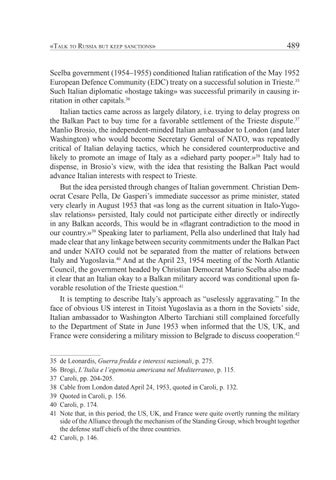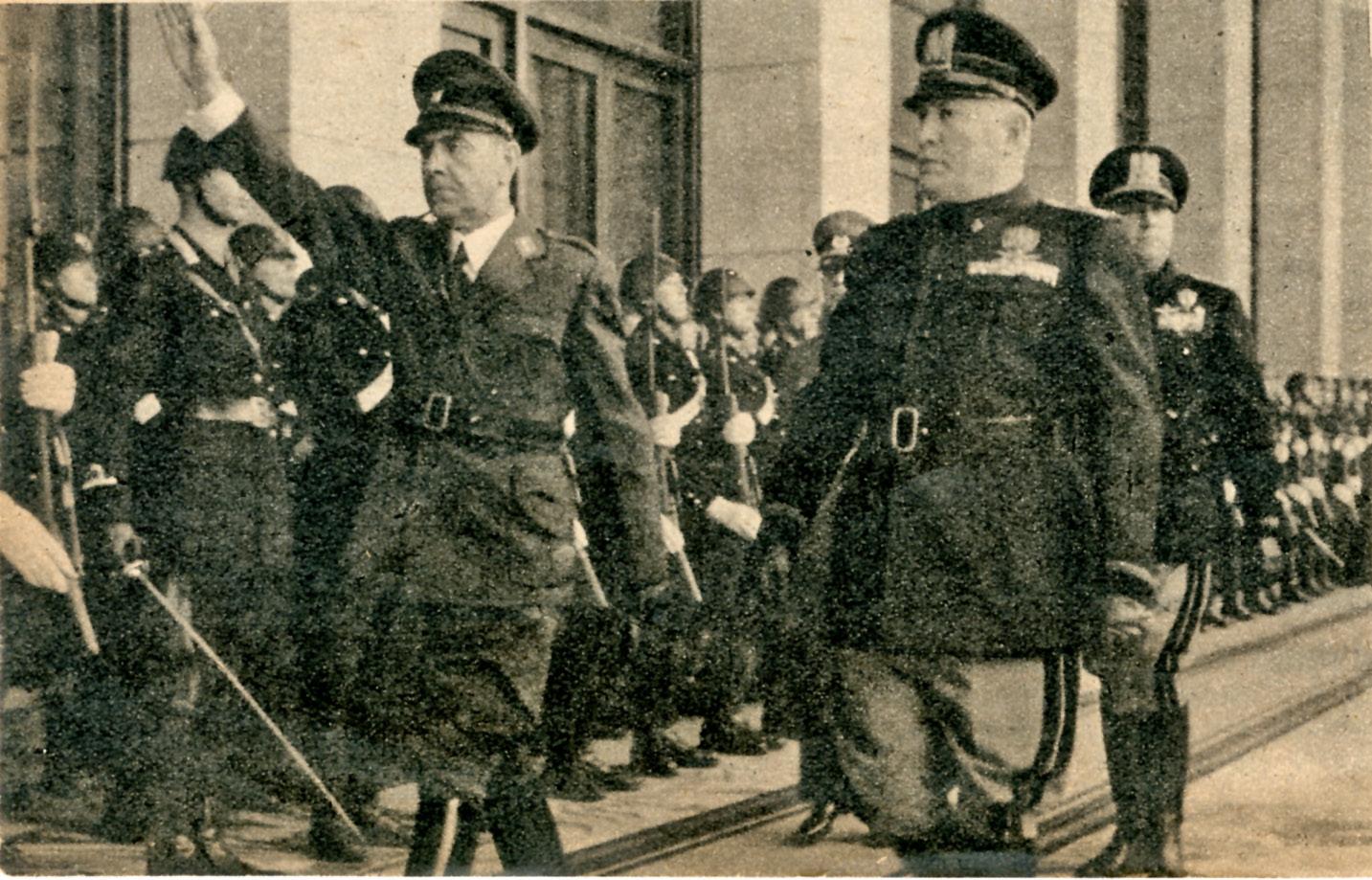«Talk to Russia but keep sanctions»
489
Scelba government (1954–1955) conditioned Italian ratification of the May 1952 European Defence Community (EDC) treaty on a successful solution in Trieste.35 Such Italian diplomatic «hostage taking» was successful primarily in causing irritation in other capitals.36 Italian tactics came across as largely dilatory, i.e. trying to delay progress on the Balkan Pact to buy time for a favorable settlement of the Trieste dispute.37 Manlio Brosio, the independent-minded Italian ambassador to London (and later Washington) who would become Secretary General of NATO, was repeatedly critical of Italian delaying tactics, which he considered counterproductive and likely to promote an image of Italy as a «diehard party pooper.»38 Italy had to dispense, in Brosio’s view, with the idea that resisting the Balkan Pact would advance Italian interests with respect to Trieste. But the idea persisted through changes of Italian government. Christian Democrat Cesare Pella, De Gasperi’s immediate successor as prime minister, stated very clearly in August 1953 that «as long as the current situation in Italo-Yugoslav relations» persisted, Italy could not participate either directly or indirectly in any Balkan accords, This would be in «flagrant contradiction to the mood in our country.»39 Speaking later to parliament, Pella also underlined that Italy had made clear that any linkage between security commitments under the Balkan Pact and under NATO could not be separated from the matter of relations between Italy and Yugoslavia.40 And at the April 23, 1954 meeting of the North Atlantic Council, the government headed by Christian Democrat Mario Scelba also made it clear that an Italian okay to a Balkan military accord was conditional upon favorable resolution of the Trieste question.41 It is tempting to describe Italy’s approach as “uselessly aggravating.” In the face of obvious US interest in Titoist Yugoslavia as a thorn in the Soviets’ side, Italian ambassador to Washington Alberto Tarchiani still complained forcefully to the Department of State in June 1953 when informed that the US, UK, and France were considering a military mission to Belgrade to discuss cooperation.42 de Leonardis, Guerra fredda e interessi nazionali, p. 275. Brogi, L’Italia e l’egemonia americana nel Mediterraneo, p. 115. Caroli, pp. 204-205. Cable from London dated April 24, 1953, quoted in Caroli, p. 132. Quoted in Caroli, p. 156. Caroli, p. 174. Note that, in this period, the US, UK, and France were quite overtly running the military side of the Alliance through the mechanism of the Standing Group, which brought together the defense staff chiefs of the three countries. 42 Caroli, p. 146. 35 36 37 38 39 40 41


























